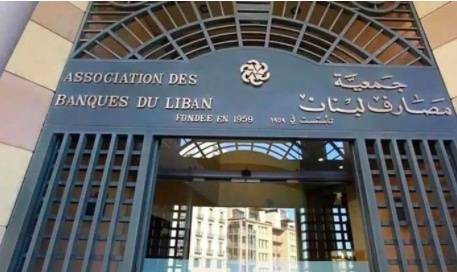
The headquarters of the Association of Banks in Lebanon. (Credit: NNA)
BEIRUT — The Association of Banks in Lebanon’s Secretary-General Fadi Khalaf suggested on Friday the transfer of 20 percent of any future income from the oil and gas sector to a Special Purpose Vehicle that would be used to repay depositors.
In ABL’s monthly publication, Khalaf said that “when it is easier to write off the deposits than to find solutions … and when it is the depositors who are punished instead of those who wasted the money, then the plan to “execute” the deposits can be called a plan for economic recovery.”
Khalaf said that the plan to write off 75 percent of the deposits to cover $60 billion of losses at the central bank, which is actually the responsibility of the government, will not be accepted neither by depositors nor by banks.
Khalaf , based on an initial proposal by a senior banker, called for the creation of an SPV that would receive 20 percent of the net income generated by the oil and gas sector. The money would then be distributed to depositors on a pro-rata basis.
Khalaf listed many advantages to the proposed plan including “not executing” the deposits directly or indirectly; reducing expenses on the government; protecting 20 percent of the income generated by the oil and gas sector from being exploited by corrupt politicians; offering all Lebanese the opportunity to participate in their country’s resources; offering an exit for depositors looking to sell their deposits; and encouraging foreign investments and the inflow of foreign currency if international investors decide to buy shares in the SPV.
Khalaf wrote in his letter that the Norwegian company Spectrum estimated the gas reserves at between 25 and 96 trillion cubic feet. This size of reserves would be valued at between $300 billion and $1 trillion. Lebanon’s share is 50 percent of the total production, so the net income it would receive would amount to between $150 and $500 billion.
During an interview with journalist and podcaster Jad Ghosn in March, former General Director of the Finance Ministry Alan Bifani, who has done a study on hydrocarbon reserves, said that in the best case scenario, Lebanon’s gas reserves would be worth $1.5 billion or $2 billion per year.
The government’s economic recovery plan was approved at the last minute on May 20 by the cabinet, just before it assumed caretaker status in the aftermath of parliamentary elections. The plan called for the write-off of $60 billion in deposits while aiming to protect small depositors by introducing a state guarantee for amounts up to $100,000.